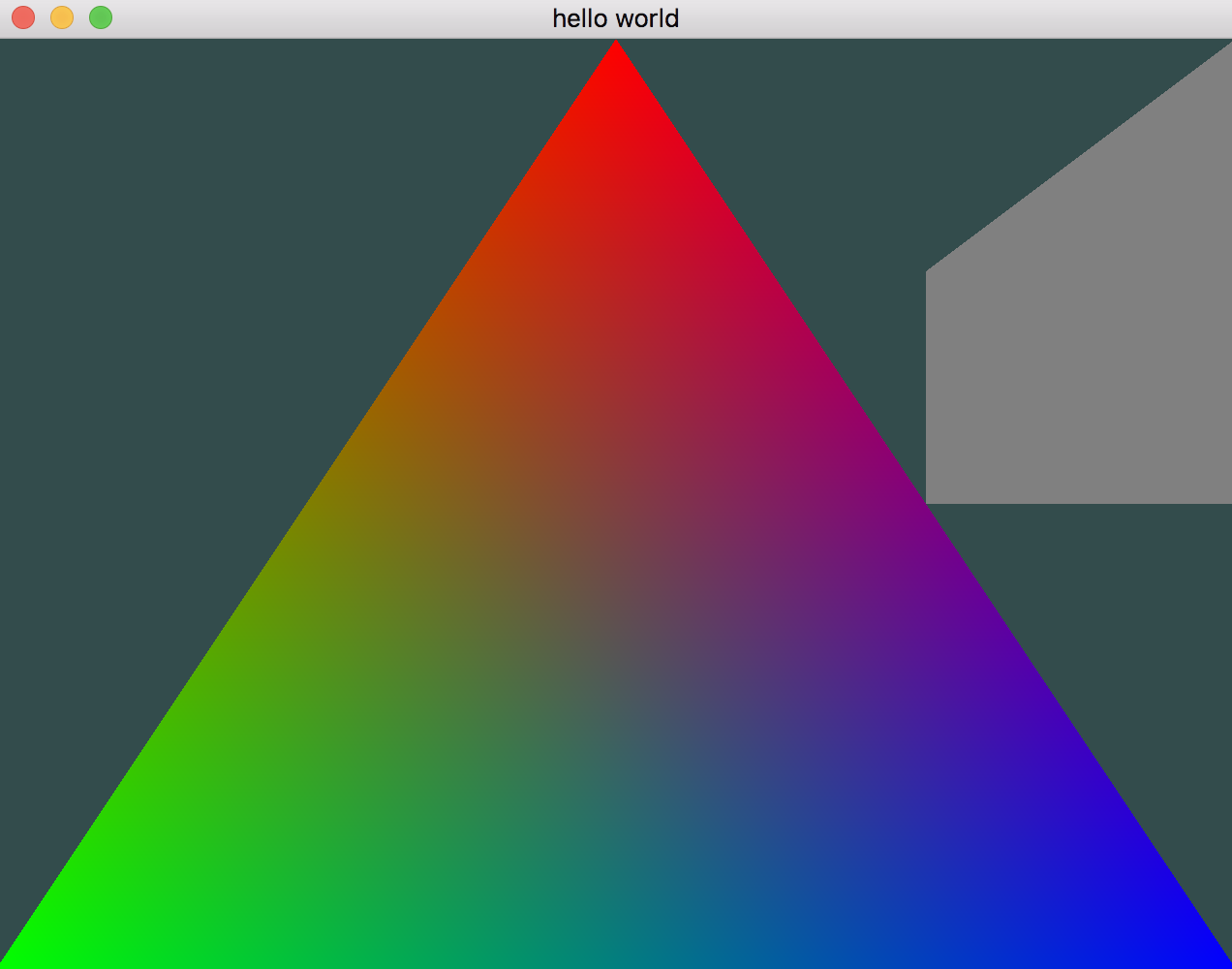GLFW初体验
网上关于OpenGL的教程大多是基于GLUT的,但是GLUT已经相对陈旧了,博主参考着learnopengl学习一下GLFW。
基本流程
根据GLFW官网给出的样例,基本流程是:
- 初始化窗口
- 注册事件
- 开始循环直到退出
- 渲染窗口
- 交换窗口内容和buffer内容(即更新)
- 轮询注册的事件
#include <GLFW/glfw3.h>
int main(void)
{
GLFWwindow* window;
/* Initialize the library */
if (!glfwInit())
return -1;
/* Create a windowed mode window and its OpenGL context */
window = glfwCreateWindow(640, 480, "Hello World", NULL, NULL);
if (!window)
{
glfwTerminate();
return -1;
}
/* Make the window's context current */
glfwMakeContextCurrent(window);
/* Loop until the user closes the window */
while (!glfwWindowShouldClose(window))
{
/* Render here */
glClear(GL_COLOR_BUFFER_BIT);
/* Swap front and back buffers */
glfwSwapBuffers(window);
/* Poll for and process events */
glfwPollEvents();
}
glfwTerminate();
return 0;
}
测试代码
#include <GL/glew.h>
#include <GLFW/glfw3.h>
#include <iostream>
using namespace std;
void key_callback(GLFWwindow* window, int key, int scancode, int action, int mode)
{
//如果按下ESC,把windowShouldClose设置为True,外面的循环会关闭应用
if(key==GLFW_KEY_ESCAPE && action == GLFW_PRESS)
glfwSetWindowShouldClose(window, GL_TRUE);
std::cout<<"ESC"<<mode;
}
int main(void)
{
//初始化GLFW库
if(!glfwInit())
return -1;
//创建窗口以及上下文
GLFWwindow* window = glfwCreateWindow(640, 480, "hello world", NULL, NULL);
if(!window)
{
//创建失败会返回NULL
glfwTerminate();
}
//建立当前窗口的上下文
glfwMakeContextCurrent(window);
glfwSetKeyCallback(window, key_callback); //注册回调函数
//循环,直到用户关闭窗口
while(!glfwWindowShouldClose(window))
{
/*******轮询事件*******/
glfwPollEvents();
/*******渲染*******/
//选择清空的颜色RGBA
glClearColor(0.2, 0.3, 0.3, 1);
glClear(GL_COLOR_BUFFER_BIT);
//开始画一个三角形
glBegin(GL_TRIANGLES);
glColor3f(1, 0, 0); //Red
glVertex3f(0, 1, 1);
glColor3f(0, 1, 0); //Green
glVertex3f(-1, -1, 0);
glColor3f(0, 0, 1); //Blue
glVertex3f(1, -1, 0);
//结束一个画图步骤
glEnd();
glBegin(GL_POLYGON);
//再画个梯形,需要注意笔顺
glColor3f(0.5, 0.5, 0.5); //Grey
glVertex2d(0.5, 0.5);
glVertex2d(1, 1);
glVertex2d(1, 0);
glVertex2d(0.5, 0);
glEnd();
/******交换缓冲区,更新window上的内容******/
glfwSwapBuffers(window);
}
glfwTerminate();
return 0;
}
测试结果
